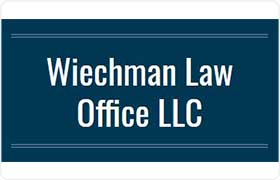Lecompton Bankruptcy & Debt Lawyer, Kansas
Sponsored Law Firm
-
 x
x

Click For More Info:
-
Wiechman Law Office LLC
1101 Sw 10th Ave. Topeka, KS 66604» view mapBankruptcy & Debt Law A Better Way Forward
Our mission is to guide our clients to a better way of life. We are here to listen. We are here to help. We’ll find a solution that fits you and your situation.
800-969-4051
Benjamin M. Wells
Banking & Finance, Litigation, Bankruptcy
Status: In Good Standing *Status is reviewed annually. For latest information visit here
Arturo Alejandro Thompson
Litigation, International Other, Bankruptcy, Bankruptcy & Debt, Lawsuit & Dispute
Status: In Good Standing *Status is reviewed annually. For latest information visit here Licensed: 19 Years
 Kerry Gasper Topeka, KS
Kerry Gasper Topeka, KS